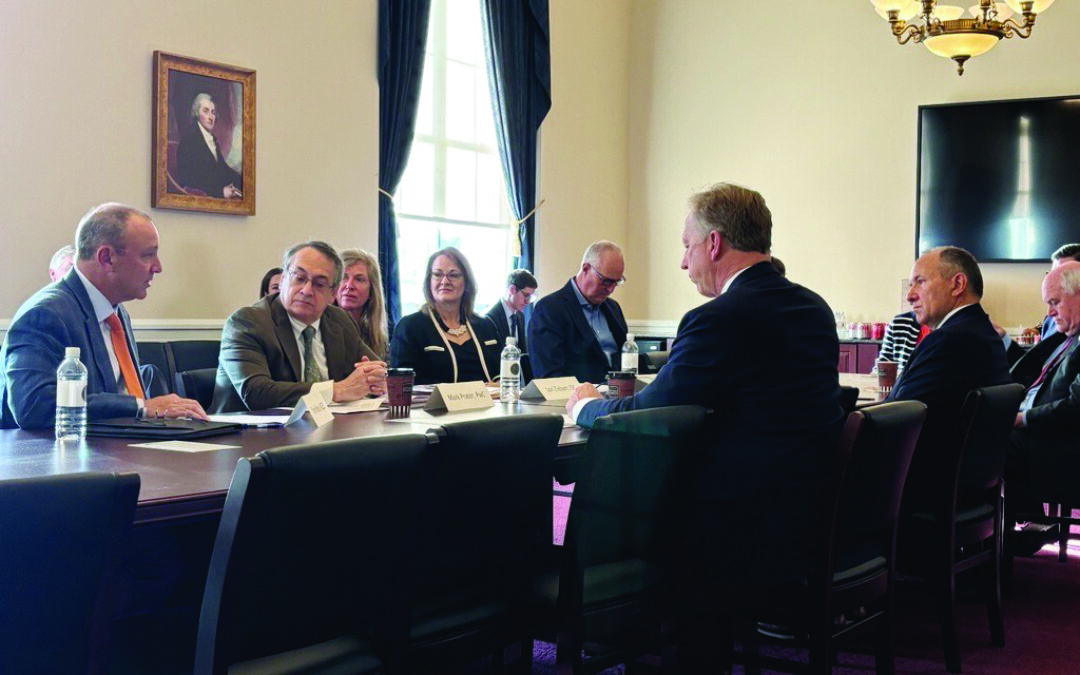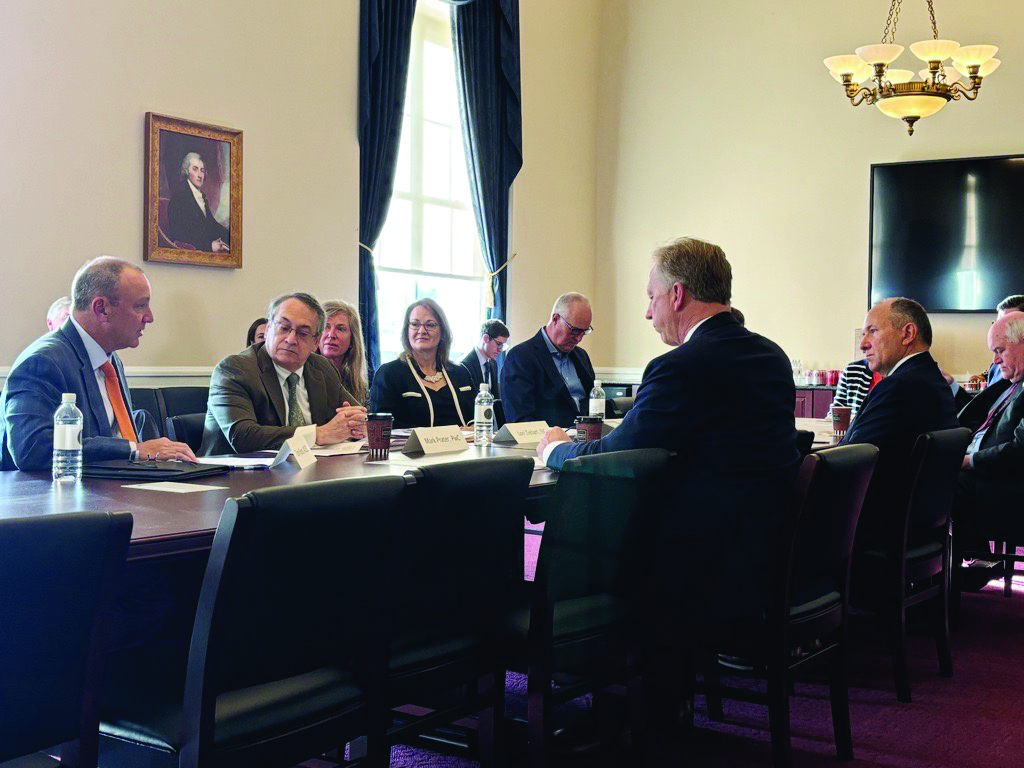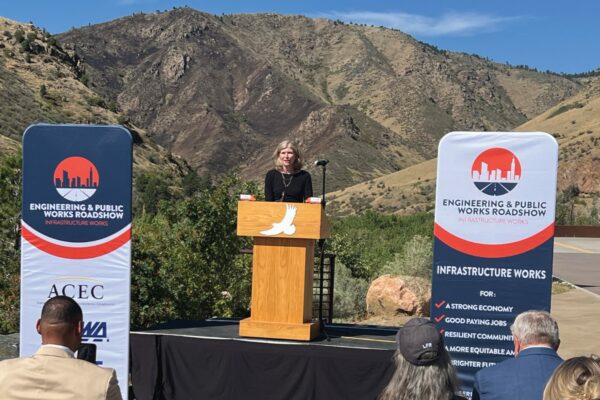ACEC Member Testifies on Tax Policy Priorities

Tom Pace, CFO of Thomas & Hutton and Chair of the ACEC Tax & Regulatory Affairs Committee, testified in front of the House Ways and Means Committee Main Street Tax Team on the importance of the Section 199A passthrough tax deduction to the engineering industry. The roundtable discussion was part of the Ways and Means Committee’s overview of tax provisions that will be up for debate in 2025 when significant portions of the 2017 Tax Cuts and Jobs Act (TCJA) expire.

The Section 199A deduction was created as part of the TCJA at the same time as the corporate tax rate was lowered from 35 percent to 21 percent. This balanced tax treatment of all business structures is essential to ACEC because its membership is a mix of C corporations and passthrough entities, such as S corporations, partnerships, and LLCs.
Pace’s statement discussed how Section 199A has given Thomas & Hutton the financial flexibility to increase salaries as a workforce retention measure. In addition, he provided the legislative history of why engineering and architecture are treated differently than other professional services that do not have full access to the deduction.
ACEC also submitted comments to the Ways and Means tax teams on all of the Council’s priorities in the 2025 tax debate and is engaging with all House and Senate tax writers to ensure that the engineering industry’s concerns are front and center.
Federal Rule Reinforces Prohibition on Reverse Auctions for Engineering Services
As a result of ACEC’s advocacy efforts, a new federal rule was recently finalized that specifically prohibits the use of so-called reverse auctions for procuring architect and engineering (A/E) services.

A reverse auction is often presented as an online competition where contractors can submit multiple bids to win a contract. Often described as a “race to the bottom,” the process directly conflicts with Qualifications-Based Selection laws at the federal and state levels.
The Construction Consensus Procurement Act of 2021 (P.L. 117-28, July 26, 2021) required the rulemaking clarifying a prohibition on the use of reverse auctions for procurements of A/E services that are subject to the Brooks Act (40 U.S.C. Chapter 11) by adding language to Federal Acquisition Regulation 17.803. The rule also prohibits reverse auction use for design-build contracts. The final rule was published in the Federal Register on July 30, 2024, and became effective on August 29, 2024. Click here to read the final rule.
ACEC Seeks Feedback on DOD Cybersecurity Proposed Rule
The Department of Defense (DOD) released a proposed rule on August 15 that would inject the Cybersecurity Maturity Model Certification (CMMC) program requirements into the contracting process. CMMC aims to verify if defense contractors follow cybersecurity standards—crucial for protecting sensitive but unclassified information. Contractors should aim to understand whether they may be required to meet CMMC requirements well before the solicitation.

The proposed Defense Federal Acquisition Regulation Supplement (DFARS) rule lays out a three-year-long “phased rollout” of the CMMC requirements. “The rollout is intended to minimize both the financial impacts to the industrial base, especially small entities, and disruption to the existing DOD supply chain,” it states.
ACEC has concerns about the implications for digital delivery, the impacts of flow-down processes in teaming to form the most qualified offer for Brooks Act (Qualifications-Based Selection) contracts, and the protestable grounds for a self-assessment at contract award, as well as the procedures for notifying the contracting officer within 72 hours of discovering a cybersecurity incident.
On October 15, ACEC submitted comments on the proposed DFARS rule to implement contract requirements. In October, the DOD released the final rule for the CMMC program, containing hundreds of changes to CFR Part 32. CMMC could be a foundational requirement for A/E companies looking to do business with the DOD. ACEC plans additional feedback and educational sessions prior to CMMC language appearing in DOD solicitations, as soon as early 2025. Click here for more information on the CMMC program. Please share your thoughts with the Federal Agencies & Procurement Advocacy Committee, staffed by the new ACEC Vice President for Federal & International Programs Bradley Saull at bsaull@acec.org.
House and Senate Pass WRDA Bills
Earlier in 2024, both the Senate and House of Representatives passed Water Resources Development Act (WRDA) bills with overwhelming bipartisan support and were working to negotiate a final bill to send to the president’s desk before the end of 2024. The House bill passed by a vote of 359-13 on July 22, and the Senate followed by passing a WRDA bill unanimously in that chamber by a voice vote on August 1.
The ACEC-backed WRDA bill authorizes flood control, navigation, hurricane and storm damage reduction, and ecosystem restoration projects of the U.S. Army Corps of Engineers and is typically enacted every two years. The bills passed by both houses of Congress build on previous WRDA laws, with some differences. The Senate bill, named after the retiring Chairman of the Senate Environment & Public Works Committee, Tom Carper (D-Del.), authorizes 13 new or modified construction projects and 83 new feasibility studies. The House bill authorizes 12 projects and 161 new feasibility studies.
Both the House and Senate bills include provisions to improve the transparency of environmental reviews and improve project delivery for Army Corps projects. Specifically, the House bill requires the Army Corps to track NEPA documents through an online permitting dashboard, and the Senate bill requires timely updates to the Army Corps’ “permit finder.” ACEC supports improving the Army Corps’ processes for permitting and project delivery, which will help reduce delays in the time it takes to complete Corps projects.

Notably, the House WRDA bill also reauthorizes the Federal Emergency Management Agency’s National Dam Safety Program through 2028. ACEC supported the inclusion of this important reauthorization in the WRDA bill, which will ensure that funding remains available to reduce the risks associated with a dam failure across the country.
ACEC continues to support the enactment of WRDA laws every two years to ensure the timely authorization of Army Corps studies and projects. ACEC will continue to engage with Congress as both chambers work to get WRDA 2024 over the finish line.




